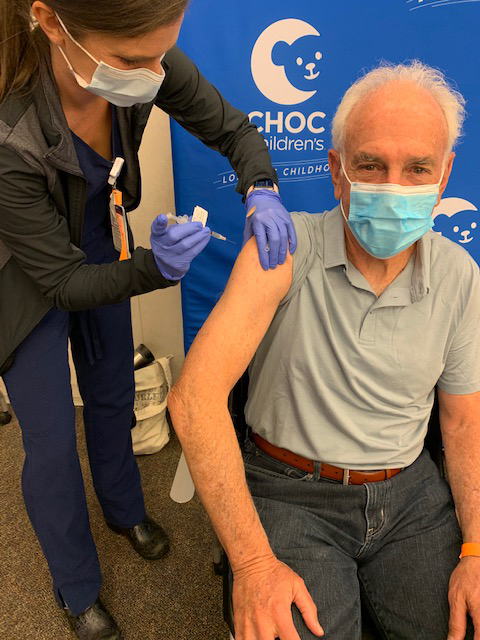From For Event-News Enterprise, April 8, 2021
By Dr. Robert Kaplan

Dr. Robert Kaplan
As we head into the second year of the Covid-19 pandemic, it is important to understand the effects of the virus on children. While the rate of infection in kids is much lower than in adults, children are not immune to COVID-19 and are suffering from both short-and long-term complications.
According to the American Academy of Pediatrics and the Children’s Hospital Association, more than three million children and young adults tested positive for Covid-19 in the United States as of February 2021. Most of these kids experienced mild, if any, symptoms. There are probably many more who were infected, but because they were asymptomatic, testing was not done.
Although very rare, some kids will develop what is called multisystem inflammatory syndrome in children, also known as MIS-C, about four to six weeks after they are infected with Covid-19. MIS-C is a condition where different body parts – such as the heart, lungs, kidneys, brain, skin, eyes or gastrointestinal organs – become inflamed. There have been about 2,000 cases of the condition reported so far in the U.S. Children with MIS-C can be very ill with high fevers, respiratory symptoms, rashes and more. Many are admitted to a hospital’s intensive care unit. The earlier these children are seen and diagnosed, the better the outcome. As a result, it is of utmost importance to contact your pediatrician right away if your child has any of these symptoms; fever that won’t go away, abdominal pain, diarrhea or vomiting, bloodshot eyes, or rashes or changes in skin color. Seek emergency care if your child experiences trouble breathing; pain or pressure in the chest that does not go away; new confusion; inability to wake or stay away; bluish lips or face; or severe abdominal pain.
In addition to MIS-C, another alarming trend is what is being referred to as “Long-Hauler’s Syndrome.” Physicians are seeing a large number of adults and children – who are either asymptomatic for COVID-19 or have mild symptoms – complain of fatigue, shortness of breath, loss of smell or taste, or brain fog weeks to months after they were infected. Even more troubling, these symptoms appear to linger and are often viewed as “emotional” problems. Parents should watch for these symptoms in their kids and not delay seeking care. Your pediatrician can partner with you and connect you with resources, including specialists who can help manage or treat abnormalities. Your pediatrician can ensure your children are staying healthy, including receiving timely vaccinations, managing chronic conditions and addressing mental health concerns. With a return-to-sports in schools and in the community, your pediatrician is also your resource for sports physicals, which are especially important following a COVID-19 infection.
Although the arrival of safe, effective COVID vaccines offers hope, we must all remain vigilant in protecting ourselves and others against the virus. Please continue to wear masks, keep your distance from individuals outside your household, avoid large indoor gatherings and wash your hands. As soon as you’re eligible, please get vaccinated. It’s truly the best way to protect our community.
Dr. Robert Kaplan is a Pediatrician with Los Alamitos Pediatrics











